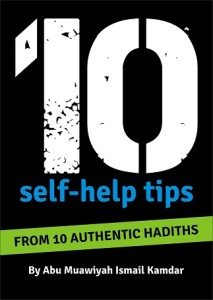It can happen to anybody. One day you are earning well, the next day you are deep in debt and out of a job. Life is a test, and we all go through different stages in the tests of life. One test that almost everybody faces at some point in their life (or multiple) is losing a major source of income. Whether it is a job, a business or an investment, losing a large source of your monthly revenue can be a depressing and stressful event. In such cases, do the following:
1. Trust Your Creator
In Islam, we have a concept called Tawakul (trusting God) which simply means that we believe Allah’s plan is best for us and we live our lives with full trust in that plan. This means when things don’t go our way it is usually for the best and there is some benefit in that for us, even if we can’t understand it immediately. This belief helps a Muslim get through any difficulty with optimism and hope.
I have experienced this at multiple points in my life. In 2008, I lost my job as a school teacher. As a result of that, I got a much better job at the Islamic Online University which I still work today. In 2014, I got conned by a scammy book dealer, as a result, I learned to self-publish my books and am earning a decent profit from ongoing book sales. And then this year, in 2019 I lost a major contract that was making up 50% of my income. As a result, I had to dig deeper and invent a new source of income for myself. So I became a freelance writer and was able to make up that income through freelance projects. In fact, I am enjoying those freelance projects a lot more than the job I lost.
The point is that Allah’s plan is best. If I hadn’t lost in the above three cases, I wouldn’t have gained much better sources of income in return. The losses were necessary to push me in the right direction. The same applies to you. So trust Allah’s plan, He knows best.
2. Never put your eggs in one basket
One of the reasons I was able to overcome major financial hurdles in my life is because I don’t keep my eggs in one basket. This means I don’t restrict myself to one source of income. If you have only one source of income and it goes downhill or gets taken away, you are left in a very difficult situation. This is what happened to me in 2008 and since I have been very careful to ensure I always have multiple streams of income. You should too.
If you are working a job, set up side streams of income like online businesses, a second after-hours jobs, investment accounts or freelance work in the evenings. Do whatever is necessary to protect yourself and your family from financial loss. Yes, it isn’t possible to never experience financial problems if that is what Allah has destined for you, but having side streams of income helps to cushion the fall. So prepare for the difficulties by working on as many side streams of income as possible.
3. Dig deeper and find something better
The majority of people I meet are grateful for the hardships they faced in life. This is because these hardships shaped their personalities and pushed them in the direction that led to their eventual success. A difficult situation is simply an opportunity to dig deeper and find something better for yourself. It is a chance to reinvent yourself, find your true calling and emerge a better person. Take every obstacle as a challenge to do better and to be better. Do this and you will always find yourself rising after every challenge.
One of the things I love to teach people is how to build their confidence to overcome challenges and achieve their dreams. This is why I have put together a revolutionary course on building your self-confidence the Islamic way. You can access the course today at a 50% discount by using this link. Grab it today and you will also receive FREE access to my course on public speaking. Sign up here if you are ready to start building the confidence to achieve your dreams.
Conclusion
Every single one of us will face difficulties at different points in our life. Allah had promised to test us with restricting our finances, so when we should be spiritually, financially and mentally prepared to handle such tests. By having firm Tawakul in Allah, building multiple streams of income and using every difficulty as an opportunity to be better, we can come out of every financial difficulty on a higher level.
If you benefited from this article, join our self-confidence course to learn over two dozen more ways to improve the confidence. Sign up today and you will get a 50% discount + Free Access to my public speaking course.




